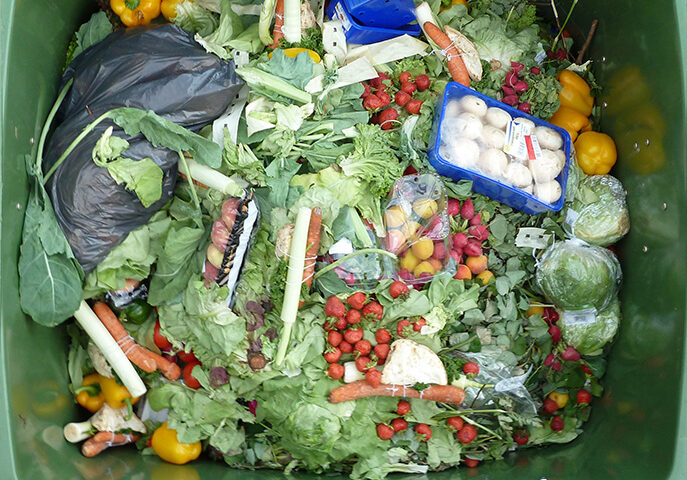| In Pierce County, officials estimate 40,000 tons of edible food are thrown away in the homes of county residents each year. It’s a waste of food and hard on the environment. To do something about the environmental impact, the county’s curbside residential yard waste program now accepts discarded food, too. Customers can add food to their yard waste container to be hauled away. |
| The service, part of a county plan that calls for a 45 percent reduction in greenhouse gases by 2030, is coordinated by the county in partnership with LRI, Murrey’s Disposal, LeMay Pierce County Refuse, and University Place Refuse and Recycling. |
| Food waste can come from fruit and vegetables, seafood (including shells), bones, meat, dairy, bread, rice, coffee grounds and tea bags. While preventing wasted food in the first place has the greatest environmental benefit, diverting it from landfills will extend the life of landfills and reduce greenhouse gas emissions. When food and yard waste end up in the landfill, the nutrients never return to the soil. Instead, the organic material rots and produces methane, a powerful greenhouse gas. Officials noted that composting food scraps reduces soil erosion, improves water quality, helps store carbon, and increases soil’s ability to retain water. |
The food recycling effort was announced in April. More information is at PierceCountyWa.gov/YardWaste. According to national research, a family of four loses approximately $1,500 each year on wasted food. A simple way to waste less is to plan meals, shop for groceries with a list, and store produce properly. If that’s easier said than done, information on ways to do it is available at piercecountywa.gov/5421/food-waste,
Similar advice is available in King County, where Re+, a county-sponsored initiative, aims to cut greenhouse gas emissions by reducing the amount of garbage going to the regional landfill. That includes food, which officials report accounts for about 18 percent of what the county’s residents send to the dump. More information is at kingcounty.gov/solid-waste/programs. |
